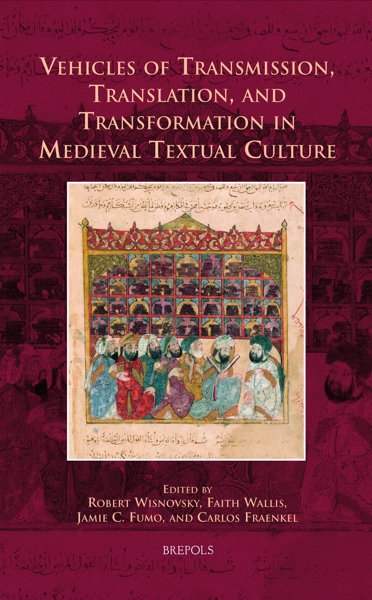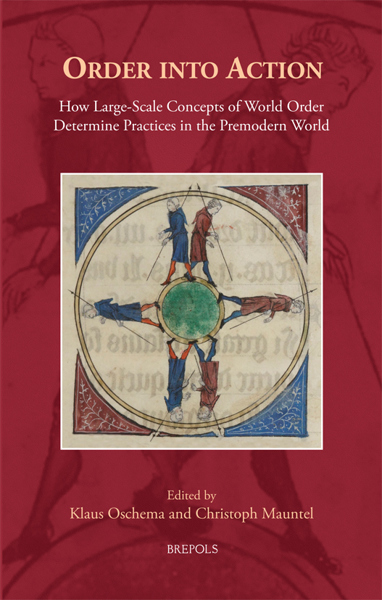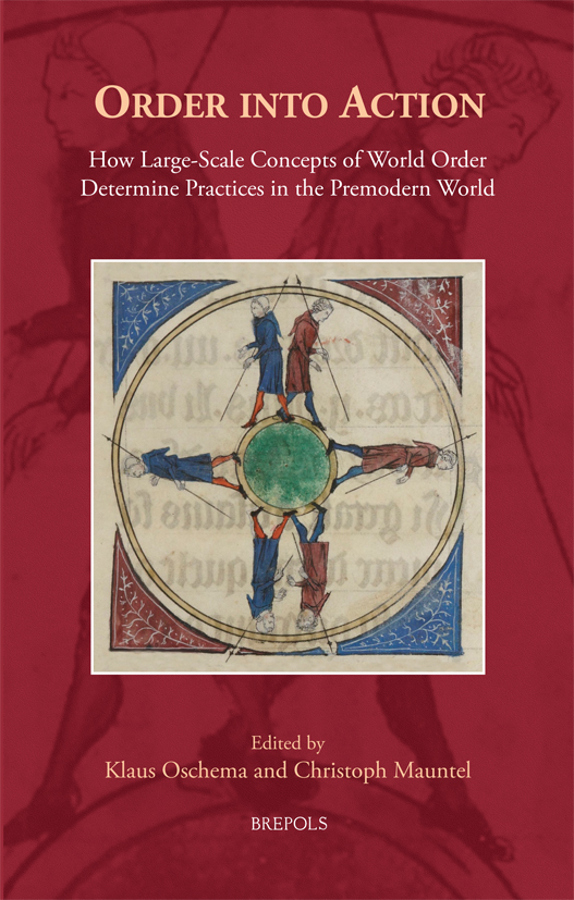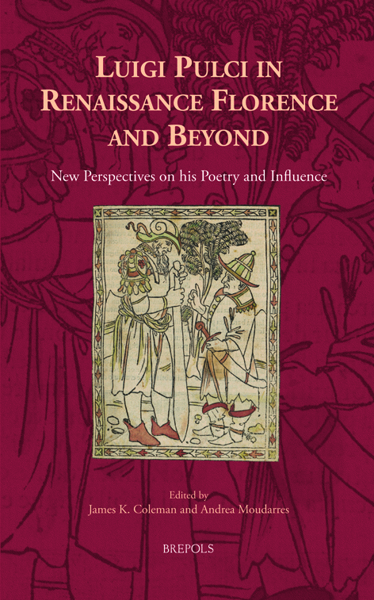
Order into Action
How Large-Scale Concepts of World-Order determine Practices in the Premodern World
Christoph Mauntel, Klaus Oschema (eds)
- Pages: 332 p.
- Size:156 x 234 mm
- Illustrations:5 b/w, 16 col.
- Language(s):English
- Publication Year:2022
- € 90,00 EXCL. VAT RETAIL PRICE
- ISBN: 978-2-503-59046-2
- Hardback
- Available
- € 90,00 EXCL. VAT RETAIL PRICE
- ISBN: 978-2-503-59047-9
- E-book
- Available
A cross-cultural enquiry into the practical effects of ordering the (premodern) word.
"...Even as the search for a deterministic relationship between large-scale concepts and everyday practices runs aground, the individual offerings exhibit great sophistication in the context of the collection’s wonderful expansiveness and very productive comparative scope." (Michael Vargas, in Mediaevistik, 36(1), 2023, p. 338)
Christoph Mauntel is a postdoctoral researcher at the Institute of Medieval History (University of Tübingen). His research focuses on late medieval political culture (esp. in France) and the interrelation between geographical and cultural concepts in premodern cultures.
Klaus Oschema is professor of (late) medieval history at the Ruhr-University Bochum. His specialisation includes late medieval nobility and society, the concept of Europe in the Middle Ages and transcultural contacts and transmission of knowledge.
The construction and application of models that order complex phenomena such as ‘the world’ is not a ‘neutral’ activity: theoretical models and ideas help us to perceive and categorize the information conveyed by experience and tradition alike; in turn, they also influence the behaviour and actions of individuals and groups.
Collecting a global series of case studies on premodern societies, this volume proposes new approaches to research into premodern models of world-order and their effects. With its focus on the period between c. 1300 and 1600, it seeks to open up fresh perspectives for premodern Global History and the analysis of phenomena of transcultural contact and exchange.
Focussing on religious, political, and geographical ideas and models, the contributions explore whether and how large-scale concepts influenced or even determined concrete actions. The examples include socio-religious concepts (Christianity, terra paganorum, dār al-ḥarb), political concepts (empire) and geographical notions. A special section is dedicated to comparative insights into societies in Sub-Saharan Africa, Australia, and pre-Columbian America. Taken together, the contributions underline the importance and effects of historically shaped cultural traits in the long term.
List of Illustrations, Acknowledgements
Introduction: Creating Order and Causing Action — Klaus Oschema and Christoph Mauntel
Dār al-ḥarb vs terra paganorum: On the Practical Implications of Circumscribing the Sphere of the ‘Infidels’ — Daniel G. König
The Concept of Christendom: Christianitas as a Call to Action — Nora Berend
A ‘Medieval Islamist’ Versus an ‘Arab Machiavelli’? The Legacy of the Mamluk Scholars Ibn Taymīya (1263–1328) and Ibn Nubāta (1287–1366) — Albrecht Fuess
The Mongol World-Order: From Universalism to Glocalization — Michal Biran
Between Universal Empire and the Plurality of Kingdoms: On the Practical Influence of Political Concepts in Late Medieval Latin Europe — Christoph Mauntel and Klaus Oschema
Imperial Geography and Fatherly Benevolence: The Chinese World Order and the Construction of its Margins — Donatella Guida
The Advent of the Black Magus: Moving towards a Continental Hierarchy — Michael Wintle
Beyond Eurasia — the African Contribution to the Pre-Modern World: Examining the Global and the Local in the Kilwa Sultanate, East Africa — Mark Horton
Seeing Through the Rainbow: Aboriginal Australian Concepts of an Ordered Universe —Veronica Strang
Translating Otherworlds: The Encounter of Pre-Columbian and European Cosmologies in Colonial Missionary and Indigenous Texts from Highland Guatemala — Frauke Sachse
***
Index




